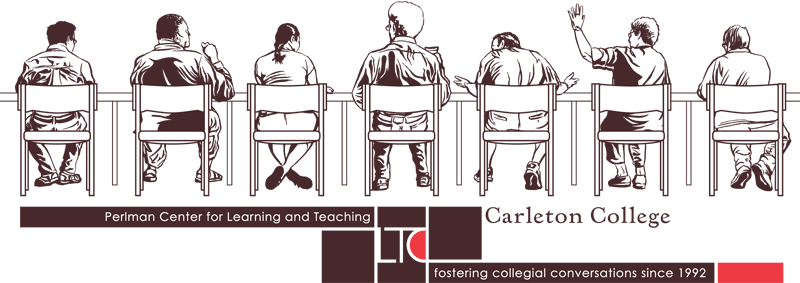As LTC Director I have been attending the meetings of the Future Learning Technologies Group, and I will also attend the consortium meeting with our peer schools that are considering how new technological approaches can enhance our teaching. I thought that I would use this forum to offer some reactions to how I think this process is going. Just as I was accepting the position of directing the LTC, it became clear that considering technology was going to be a prominent agenda item for us in the coming years. I was curious as to how much technology was going to be a part of LTC programming during my time as Director.
I would say that there is not a top-down effort to push us to include technology in our teaching. Rather, I think there is a clear idea that technology is changing quickly, as are our students, and that when we feel it is appropriate to address technology in teaching, there should be some support to do so wisely and creatively. The FLTG and the consortium for online learning were formed initially because we and other colleges were invited to join in online learning partnerships with companies that provide content for online classes. Fairly quickly, it was clear that the agendas of these providers probably did not fit the mission and character of a school like ours. But it was also clear that ignoring how technology already affects our teaching, and how it might be better utilized in the future, would be a mistake. My personal reactions to the issues raised by increased use of technology are that I think it is crucial that we make smart and economically sound decisions on how this could affect our curriculum.
Two Issues stand out to me. First, it is obvious that we are going to have to address the issue of possible credit or pre-requisite credit for courses students might take online. The challenge is that it is difficult to assess the quality of online courses when so many are offered. If we were to make an overall decision to disallow online courses, we might be ruling out some perfectly valid and rigorous classes. While AP and International Baccalaureate classes are accepted for credit, they also come with some kind of guarantee of quality and standards. The open world of online courses has no comparable governing body that could set or maintain standards. We know that some of our students have advantages of coming from programs that allow them to enter Carleton with a good amount of earned credits. If good online courses were available to students who lack access to programs like AP, it could help to address this gap in resources. But there is no doubt that it will require some method of determining how well or how much students have learned from an online course.
Second, I think we have to be careful about how online sessions are used in our courses, keeping an eye on maintaining the character of teaching we value at Carleton. I am sure that these things can be used creatively to enhance a class. We have had some good sessions at the LTC where colleagues showed how pre or post class sessions accessed online can help to keep the class moving forward. But it will require new skills as teachers for those who make use of it, and it will also require considerable support from staff to have it done well. It might be my age, but I also have some concern about the idea of screen reading versus paper reading, and the general issue of distracted reading. I know that one can be distracted while reading from a book as well. But I have been hearing about some colleagues who see a declining quality of retention and understanding in students during discussions based on readings.
